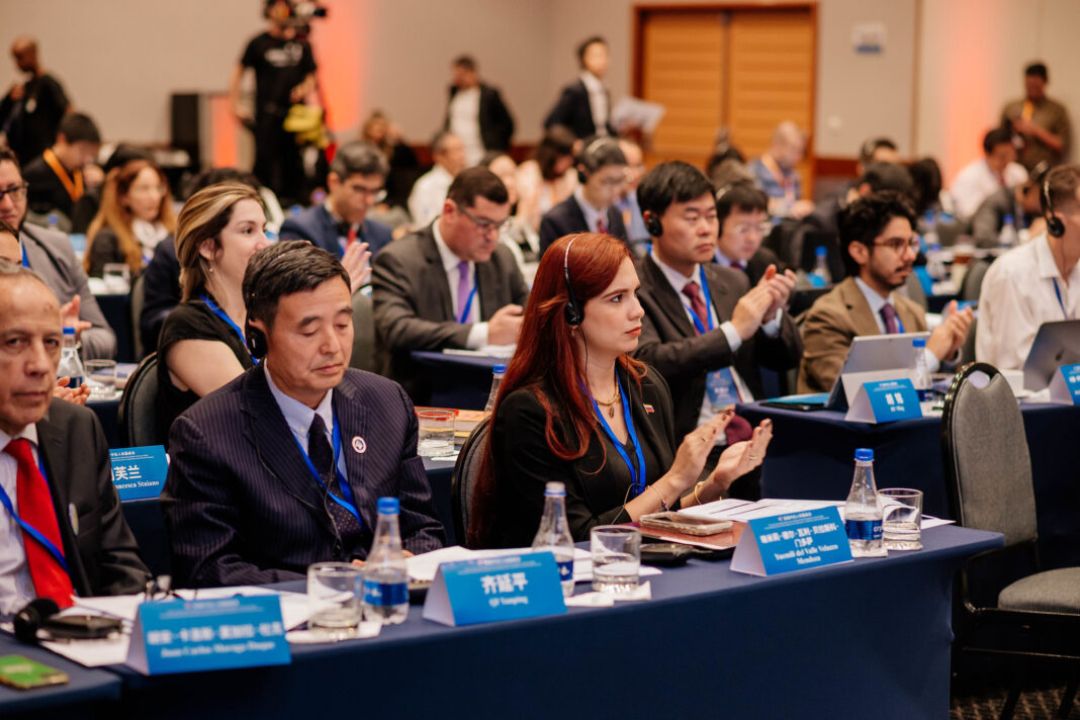
By Evandro Menezes de Carvalho*
On September 10, 2024, the First China-Latin American and Caribbean States Round Table on Human Rights took place in the city of Rio de Janeiro. The event was hosted by the Chinese Society for Human Rights Studies (CSHRS), in collaboration with Renmin University of China (RUC) and Universidade Federal Fluminense (UFF). The organization was carried out by the Chongyang Institute of Financial Studies at RUC and the Faculty of Law at UFF. More than 120 participants were present, including authorities, experts and representatives of social organizations, think tanks and the media. This conference is a historic milestone in the year that celebrates 10 years of the China-CELAC Forum (Community of Latin American and Caribbean States) and 50 years of diplomatic relations between Brazil and China.
At first glance, when we talk about human rights, many of us think about freedoms such as freedoms of expression, assembly and religion. These rights are unquestionably part of the list of human rights. But they do not survive where violence and poverty in its most diverse forms prevail. Those rights depend on something much greater, therefore: they depend on lasting peace and full and sustainable development for all. Peace is not just the absence of war; it also manifests itself when people are free from the fear of violence and discrimination. Without peace, there are no human rights; without development, there will be no development either. This is the Chinese perspective on the matter. As Xi Jinping said, “livelihood is the basis of all human rights. Living a happy life is the ultimate human right.”¹ When people are free from fear and poverty, only then can society flourish.
From this perspective, the People’s Republic of China has a lot of legitimacy to share its experiences in the field of human rights. The country has lifted 800 million Chinese people out of extreme poverty in the last 40 years. Furthermore, it guarantees its population broad access to quality education and healthcare. Anyone who has visited or lived in China knows very well that this is a fact that is easily seen in everyday life. The country’s governance is guided by an integrated vision of these rights implemented as the country’s infrastructure increases. China is a success story that needs to be, if not copied, at least studied.
But there are obstacles to moving this dialogue between China and Latin American and Caribbean countries forward in promoting human rights. One of them is the dissemination of the Cold War mentality sponsored by Western powers with the aim of excluding China from this debate. But which Western government that calls itself democratic would be in a position to be a spokesperson for human rights when, in its territory, there are growing social inequalities and crime? Another obstacle is the use of human rights as a political shield to justify economic, political or armed interventions in other countries. Those governments that support armed conflicts or block any type of resolution in the Security Council that proposes solutions to end the aggression against the Palestinian people or the end of the war between Russia and Ukraine cannot present themselves as defenders of human rights. The time for passively accepting Western hypocrisy is over. But the time to invite everyone to a sincere dialogue about human rights will never end. It is necessary to break with the alleged monopoly of Western countries on the human rights agenda. This is an essential attitude to ensure that this cause is truly global, inclusive and respectful of cultural diversity.
Sino-Latin American and Caribbean cooperation offers the possibility of reinforcing the path of human rights in order to expand dialogue, placing peace as a priority in any and all situations, and socioeconomic development as a dimension on which we must unite to build joint actions. Human rights inspire our commitment to a dialogue that unites us, not one that separates us. This plurality of voices is crucial for human rights to be effectively promoted and protected on a global basis, adapted to the realities and needs of each society. In an increasingly interconnected world, respect for human rights associated with the well-being of the people of a country – no matter how geographically distant it is or its population and territorial size – affects us all.
¹ Xi Jinping: The Governance of China, vol. IV, Beijing, Foreign Language Editions, 2023, p.71.
* Editor-in-Chief of China Today. Professor at UFF and FGV. Senior Researcher at the Institute for Global Cooperation and Understanding (iGCU), Peking University.
This text was originally published in China Hoje magazine. Click here, sign up to our community, receive a free digital subscription and access the full content.
Source: https://www.chinahoje.net/china-e-a-latina-diversidade-e-caminhos-comuns-para-realizar-os-direitos-humanos/

